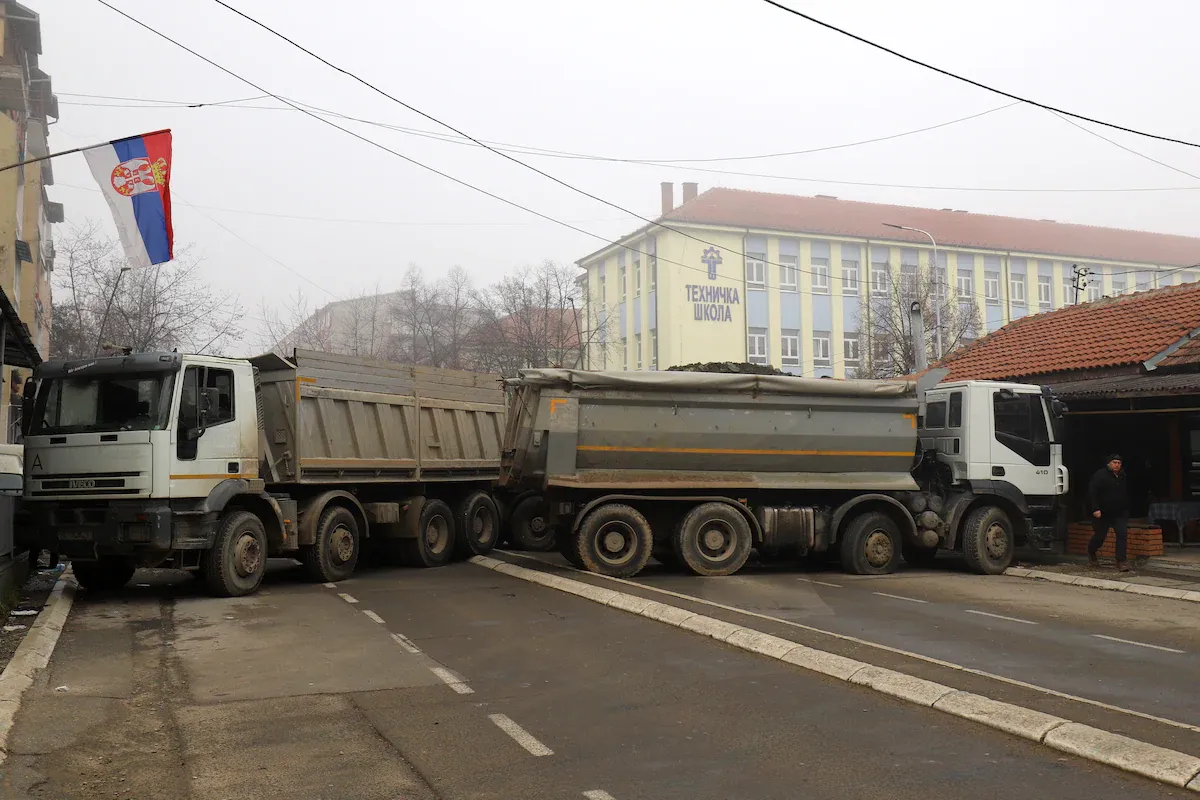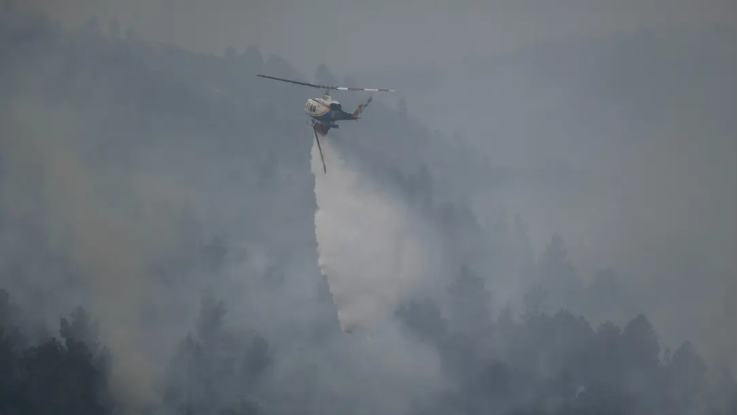Kosovo: Ethnic Serbs Erect Roadblocks; Serbia Army On High Alert
Ethnic Serbs on Tuesday put up new barriers in Mitrovica, blocking streets in one of the main towns in northern Kosovo for the first time since the recent crisis started, using heavily loaded trucks in defiance of international demands to remove roadblocks placed earlier.

Facts
- Ethnic Serbs on Tuesday put up new barriers in Mitrovica, blocking streets in one of the main towns in northern Kosovo for the first time since the recent crisis started, using heavily loaded trucks in defiance of international demands to remove roadblocks placed earlier.
- Meanwhile, Serbia's Pres. Aleksandar Vučić accused the West of plotting with ethnic Albanian authorities to "trigger unrest and kill the Serbs," while stating that Belgrade is currently negotiating with EU and US mediators on "preserving peace and finding a compromise solution."
- This comes a day after Vučić ordered the country's army and police to be put on high alert, claiming that Pristina was preparing an attack against ethnic Serbs who have been protesting against the arrest of a former Kosovo Serb policeman for almost three weeks.
- Tensions culminated in a reported shooting incident — with no reported injuries — on Sunday in a town where ethnic Serbs have been manning barricades for the past two weeks. Amid conflicting reports, NATO peacekeepers are still collecting all the facts.
- Northern Kosovo has been on heightened alert since November when hundreds of ethnic Serb workers in the Kosovo police and judiciary walked off the job in a boycott against the Kosovar PM Albin Kurti's ban on plates issued by the Serbian authorities, with the intention to replace them for Kosovo plates.
- Kosovo is predominantly populated by ethnic Albanians but has a Serb majority in its northern regions, which Serbia pulled its troops from in 1999 after NATO intervened. Kosovo declared independence in 2008, but Serbia still considers Kosovo to be part of its own territory.
Sources: Washington Post, ABC, Al Jazeera, PBS NewsHour, DW, and Bloomberg.
Narratives
- Establishment-critical narrative, as provided by Naked Capitalism. This conflict has been turned into another proxy war waged by the West over energy. With memories of NATO's bombing of Belgrade in the 1990s still fresh and the US and EU's current backing of Ukraine, it's no wonder Serbia has been looking eastward for both financial and political support. Europe, however, knows it has an economic stranglehold on Serbia, which is why it's pressing the Balkan state so hard to ditch Russia and China and succumb to the progressive green energy plans of Brussels and Berlin.
- Pro-establishment narrative, as provided by DW. Russia's war in Ukraine has prompted valid concerns that Moscow's ally Serbia could play the same card against Kosovo, especially given that neither country recognizes Kosovo as a sovereign state and both share aggressive political rhetoric. The main difference between the fate of Kyiv and Pristina lies in the presence of NATO forces in Kosovo, which has so far deterred Belgrade from waging armed conflict and restrained it from disinformation tactics and propaganda.






